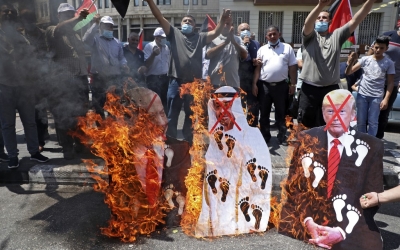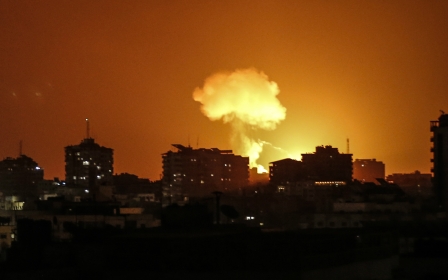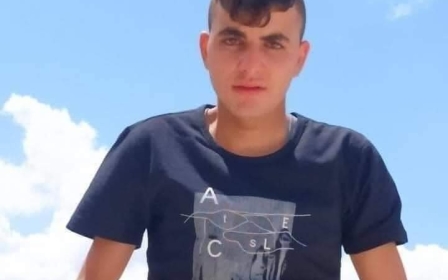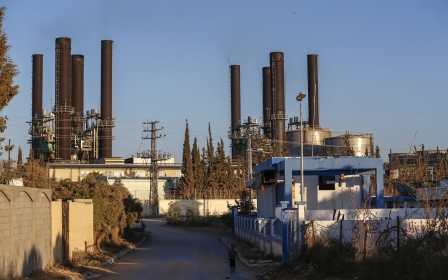Israel bombs Gaza for tenth day in a row after rocket fire
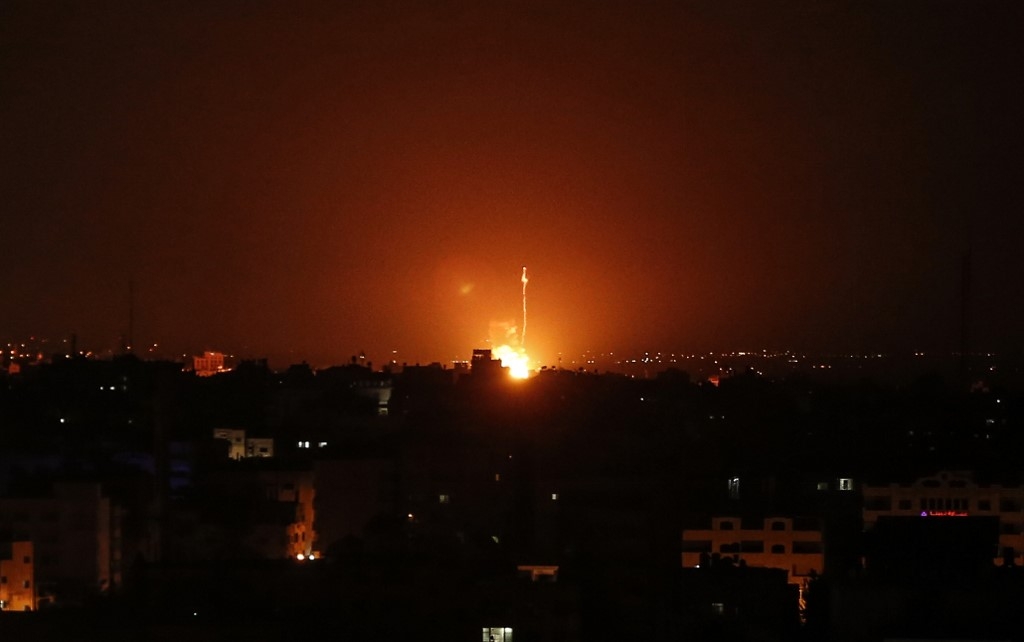
Israeli planes launched raids against Gaza late on Thursday in response to rocket fire from the Gaza Strip, as mediators sought to broker an end to the latest flare-up.
Rockets were fired at Israel but crashed inside the Palestinian enclave, according to witnesses and Gaza security sources cited by AFP. Palestinian sources reported light damage but no casualties after the Israeli raid in Khan Yunis, southern Gaza.
The latest exchanges followed anti-tank fire by the Israeli army in the morning against Hamas, the de facto ruling party in the blockaded Palestinian territory. Israel had recently threatened Hamas that it was risking "war" by failing to stop incendiary balloons it said were being launched across the border.
The Israeli army confirmed the air strikes on Twitter.
Israel has bombed Gaza almost every night since 6 August, in retaliation for the balloons or, less frequently, rocket fire. It has also tightened its 13-year blockade on Gaza's two million inhabitants.
In addition, Israel has banned Gaza fishermen from going to sea and closed its goods crossing with the territory, prompting the closure of Gaza's sole power plant because of a lack of fuel.
Gaza security officials said the strikes hit Hamas observation posts near al-Maghazi and al-Bureij refugee camps and the town of Khan Yunis, without causing casualties.
Since the exchanges erupted two weeks ago, Israeli reprisals had mainly involved warplanes, and Gaza security sources said the switch to tanks could be an attempt to de-escalate.
Egyptian mediation
The reprisals came after an Egyptian delegation had been trying to broker a return to an informal truce. Egypt has acted to calm repeated flare-ups in recent years to prevent any repetition of the three wars the two sides had fought since 2008.
The latest ceasefire, which had already been renewed several times, is bolstered by millions of dollars in financial aid from Qatar to Gaza. But complaints from Hamas that Israel had failed to live up to its side of the bargain had been accompanied by sporadic conflict on the border.
The truce was sought to supply permits for Gazans to work in Israel and financing for Gaza development projects, both measures that would provide some economic relief in an impoverished territory where unemployment exceeds 50 percent.
Sources told AFP that the twin issues were at the root of the latest flare-up.
A source close to Hamas said that the Israeli government had told the Egyptian delegation that it expected a "return to calm" before considering implementation of truce provisions such as "the extension of the eastern Gaza industrial zone" and the construction of a new power line to the territory.
Hamas had asked for the number of work permits issued to Gazans to be doubled to 10,000 once anti-coronavirus restrictions were lifted, the source said.
The truce also stipulated a monthly aid payment from Qatar of $30m until the end of next month, but the source said that Gaza's Gulf benefactor had "agreed to increase the financial subsidy by $10m per month" and extend its timeframe.
The chairman of the Qatar Committee for the Reconstruction of Gaza, Ambassador Mohammed Al-Emadi, spoke on Wednesday of "intensive efforts to contain the escalation" between Israel and Hamas.
Israel has maintained a crippling blockade of the Gaza Strip since 2007, which critics say amounts to collective punishment of the impoverished enclave's residents. Egypt also upholds the siege, restricting movement in and out of Gaza on its border.
The United Nations has long warned that Gaza would become unliveable by 2020 if the siege was not lifted.
Middle East Eye delivers independent and unrivalled coverage and analysis of the Middle East, North Africa and beyond. To learn more about republishing this content and the associated fees, please fill out this form. More about MEE can be found here.



